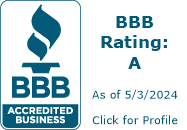IRS Tax Lien – What to do If You Receive Notification of an IRS Tax Lien
Receiving notification of an IRS Tax Lien can be intimidating. Dealing with it doesn’t have to be. If you have a Federal Tax Lien filed against you, it’ important that you handle it quickly and effectively or you may lose your assets.
These can include: money in your bank account, an IRS bank levy, your car and other property, your paycheck, wage garnishment, your retirement funds, and even your home.
The first thing to know is that you need to deal with the situation. The second thing to know is that there is help available.
If notifications from the IRS go unanswered, they will file a tax lien to protect the government; however you, as a taxpayer have rights and options to resolve your debt, and release or withdraw the IRS tax lien.
If you fail to pay your tax debt, the government can file a lien against your property – including real estate, personal property, and financial assets. This protects their interest in your property in order to settle the debt.
A federal tax lien is put into effect after the IRS:
Determines your tax liability;
Sends you a Notice and Demand for Payment (tax bill); and
You have not paid the tax bill in time.
The IRS files a Notice of Federal Tax Lien, which is a public document stating that the government has a legal right to your property. The notice reads, "There is a lien in favor of the United States on all property and rights to property belonging to this taxpayer for the amount of these taxes, and additional penalties, interest and costs that may accrue".
The filing of the notice can pose some major financial issues, such as making it difficult to obtain credit. However, there are two immediate remedies for this situation – to pay the IRS the amount you owe in back taxes, or to file an "Offer in Compromise.” Without one of these solutions, you cannot release this lien. If you don't qualify for an Offer, you can set up an Installment Agreement to pay your taxes over a period of time.
How a Lien Can Affect You
It can limit your ability to get credit since the IRS files a Notice of Federal Tax Lien which can show up on your credit report.
The lien is attached to all of your existing assets and to future assets acquired during the time the lien is in effect, including property, securities, and vehicles.
Liens attach to your business property, all rights to business property, and accounts receivable.
Even if you file for bankruptcy, an IRS lien can continue after the bankruptcy – leaving you responsible for the outstanding tax debt.
Avoid a Lien
The best way to avoid a lien is to file and pay taxes, on time and in full. If something prevents you from doing so, you need to communicate with the IRS to make other arrangements.
There are payment options and ways to settle your tax. Ignoring the correspondence from the IRS only compounds the matter.
Lien vs. Levy
Liens and levies are different. Both are used by the IRS to settle tax debt. If you don’t pay your tax debt, a lien is the way the government can secure interest in your property.
A levy is when they physically take your property to settle the debt. The government is allowed to seize and sell, or levy, any of your real or personal property if you don’t pay your taxes or make other arrangements with them.
Getting Rid of a Lien
The best way to get rid of a federal tax lien is to pay your tax debt - in full.
However if you cannot pay off the liability there are other options that can be negotiated.
If you find yourself facing an IRS Federal Tax Lien, we can help you deal with it by negotiating a payment program (if you have the means to pay the back taxes) or to assist you in filing for an Offer in Compromise. For more information on filing an OIC, check this page on the topic. Simply contact our office for a free initial consultation, and we can help you get your tax problems handled and help you get on with your life.
